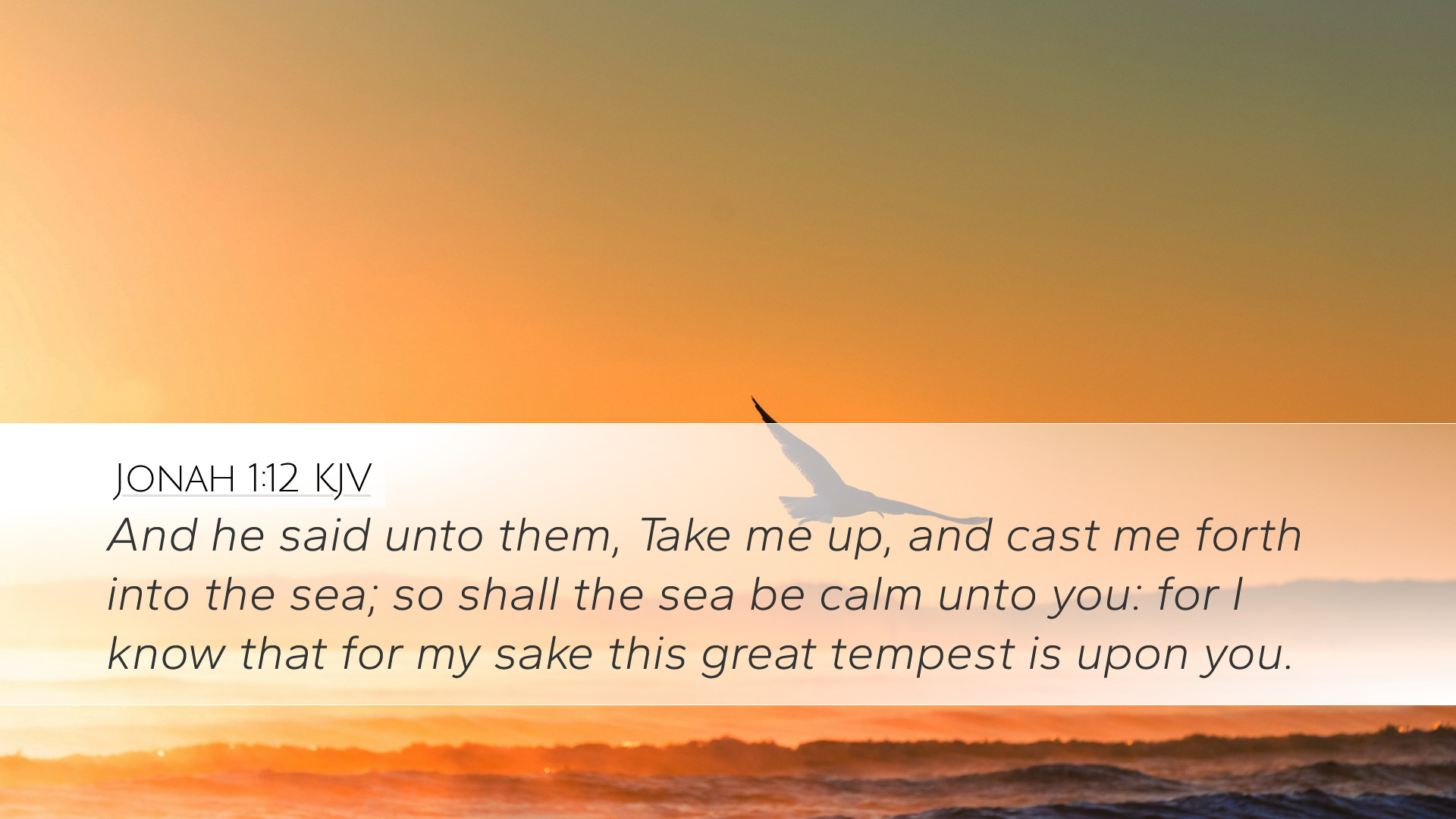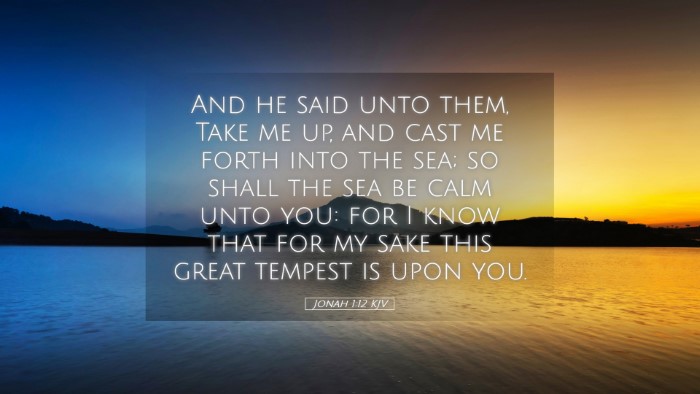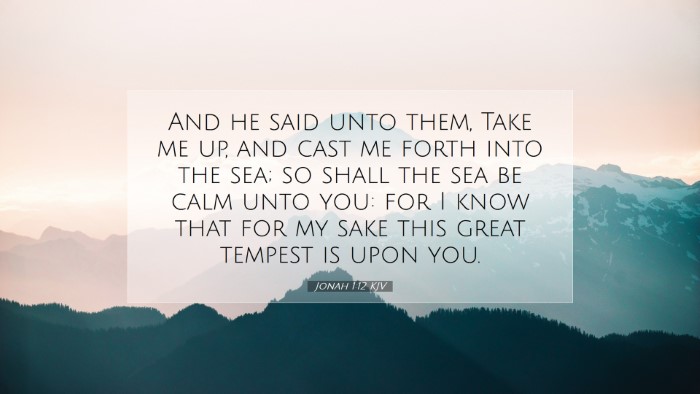Old Testament
Genesis Exodus Leviticus Numbers Deuteronomy Joshua Judges Ruth 1 Samuel 2 Samuel 1 Kings 2 Kings 1 Chronicles 2 Chronicles Ezra Nehemiah Esther Job Psalms Proverbs Ecclesiastes Song of Solomon Isaiah Jeremiah Lamentations Ezekiel Daniel Hosea Joel Amos Obadiah Jonah Micah Nahum Habakkuk Zephaniah Haggai Zechariah MalachiJonah 1:12
Jonah 1:12 KJV
And he said unto them, Take me up, and cast me forth into the sea; so shall the sea be calm unto you: for I know that for my sake this great tempest is upon you.
Jonah 1:12 Bible Commentary
Commentary on Jonah 1:12
Jonah 1:12 states:
“And he said unto them, Take me up, and cast me forth into the sea; so shall the sea be calm unto you: for I know that for my sake this great tempest is upon you.”
Contextual Background
The book of Jonah presents a narrative filled with profound themes of disobedience, mercy, and repentance. Jonah, a prophet of God, is called to preach to Nineveh but instead attempts to flee from God's command. This initial rebellion sets the stage for the events that unfold at sea, where Jonah finds himself in the midst of a fierce storm.
Verse Analysis
In Jonah 1:12, we see a pivotal moment where Jonah acknowledges his responsibility for the storm's onset. His response reveals complex themes that warrant deeper theological reflection.
Responsibility and Sacrifice
Jonah’s suggestion to be thrown overboard symbolizes not only an acceptance of personal responsibility but also an act of sacrifice. By admitting that he is the cause of the tempest, Jonah embodies the true spirit of repentance. Some commentators, like Matthew Henry, emphasize the importance of recognizing one's sin and taking steps toward atonement.
Matthew Henry notes, “When we are the occasion of calamities to others, we should be willing to remove ourselves, and not linger.” This emphasizes the weight of personal responsibility that Jonah feels for influencing the sailors' perilous situation.
Theological Implications
Jonah’s suggestion can also be viewed as a prelude to the greater sacrificial theme found within Scripture. He mirrors the ultimate sacrifice of Christ, who bears the sins of many. Adam Clarke comments, “This conveyance of guilt is a type of Christ’s atoning work, where one bears the burden that is deserved by others.” This typological understanding enriches the theological landscape of the text.
The Role of Non-Believers
Interestingly, this passage reveals the theological depth of non-believers’ involvement in God's plans. The sailors, initially oblivious to God’s will, respond to Jonah's admission in fear and awe. They attempt to row to safety before ultimately realizing that they must heed Jonah’s words. Albert Barnes highlights that “God’s hand may be upon those who are outside of covenant community, using them for His purposes.” There is a significant moment of revelation for these sailors as they recognize the God who controls the sea.
Practical Applications
- Embrace Personal Responsibility: Like Jonah, believers should learn to accept their flaws and the consequences of their actions, particularly in how they affect others.
- Acts of Sacrifice: True repentance often requires us to act sacrificially, whether through service, humility, or intercession.
- Understanding God’s Sovereignty: Reflecting on God's control over nature, even through storms, can strengthen faith and remind believers of His omnipotent authority.
- Witnessing God’s Work in Unlikely Places: The narrative encourages Christians to look for God’s presence and workings even among those who may not share their faith.
Conclusion
Jonah 1:12 invites readers to explore the complexities of obedience, sacrifice, and faith. By examining Jonah’s plea to be thrown into the sea, we witness a powerful moment of truth and accountability. Not only does this verse challenge individuals to reflect on their actions' impact on others, but it also reminds us of the overarching narrative of redemption woven throughout the Bible. Jonah’s story ultimately foreshadows the themes of sacrifice and grace that culminate in the New Testament with Jesus Christ.


